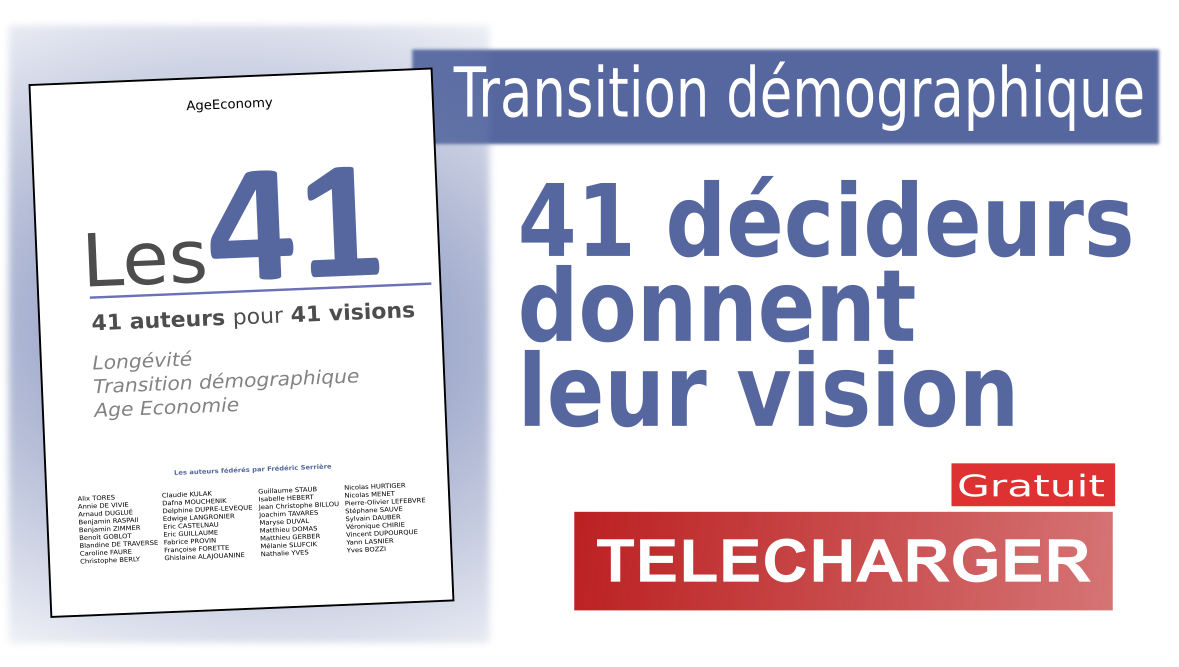Baby Boomers have now reached the “empty nest” stage of life and 57 percent feel “freedom to be themselves,” but 24 percent expect their in-laws are parents to move in and 25 percent expect the kids back home, according to research by Del Webb.
The nation’s aging Baby Boomers have supported children their entire adult lives, but soon those kids will have flown the coop. These « Flower Children » of the ’60s are fast becoming 21st Century « Empty Nesters » and they say they’re ready to reclaim their independence.
In a national survey released today by Del Webb, who claims to be the nation’s leading builder of active adult communities, Baby Boomers throughout the United States were polled on their feelings about becoming Empty Nesters and its impact on their retirement plans. Del Webb, a brand of Pulte Homes, has been conducting annual Baby Boomer Surveys since 1996.
The 2004 Del Webb Baby Boomer Survey reveals these findings about Boomers and the Empty Nest:
— 71 percent say parenting was a wonderful experience, but it wasn’t easy; roughly 19 percent admit it was more challenging than they expected.
— 58 percent are emotionally prepared for the kids to leave the house.
— 57 percent feel an increased freedom to be themselves.
— 26 percent felt « like a newlywed once again » after the kids left home for good.
— 36 percent will move to a new home when they become Empty Nesters.
— 26 percent are considering purchasing a home in an age-qualified active adult community.
— 25 percent expect their adult children to move back in with them at some point; but 28 percent plan to make those children pay rent.
— 31 percent had no debt associated with their children when the kids left home.
— Disposable income increased for 67 percent of Boomers after they became Empty Nesters; 60 percent plan to save the new-found wealth, and about half plan to spend it traveling.
« We are seeing an increasing number of Boomers who are Empty Nesters buying in Del Webb’s active adult communities, » says Dave Schreiner, vice president of active adult business development for Pulte Homes and Del Webb. « These people are not retired, but their children have left home and they now want to take full advantage of a resort-like lifestyle. They are beginning their ‘someday stage’ even before they quit working for good. »
Schreiner estimates that 20 to 50 percent of customers purchasing a home in an age-qualified Del Webb active adult community don’t plan to retire when they move in. The number is largely dependent on the availability of full or part-time employment nearby. Buyers also are continuing to work because they are younger. Since last March, 50 percent of new home buyers in Webb’s active adult communities who answered buyer profile questions were under age 60.
The Baby Boomer Survey, conducted in April and May 2004, reveals Boomers are embracing the idea of Empty Nesting, the stage in life when children move out of their parent’s home. While Boomers have an array of emotions about the situation, most look forward to getting back to what they were always accused of being – the « me generation. »
« Many Boomers think they are going to be very upset, but when it happens they are very much relieved when their children leave home, » says Linda Burghardt, author of The Happy Empty Nest. « They know they have done a good job in parenting and now they can get their own lives back. Members of the Baby Boomer generation have very high expectations for the Empty Nest. »
The term « Baby Boomer Generation » defines those born between 1946 and 1964, or those who are now 40-58 years old. The huge population ‘boom’ came after American soldiers returned from World War II and prior to the widespread use of birth control in the mid 1960s. As America’s 76 million Boomers move from parents, to Empty Nesters, to retirees, to old age, they continue to have a profound impact on social, political and economic issues.
Boomerangs:
Although Boomers like the idea of the Empty Nest, their « alone time » may not last long. In fact, 25 percent anticipate their adult children will move back in with them. Of Boomers polled, 15 percent have grown children who already returned to the nest. Called « boomerang kids, » this is a growing social phenomenon.
Julie Tillson, 57, a high school teacher and resident of Del Webb’s Sun City Lincoln Hills in Northern California, has experienced the boomerang phenomenon first hand. After going away to college for several years, her daughter returned home. « Stephanie moved back in with us for three months, » Tillson said. « She needed to because of financial reasons. It was horrible at first. She felt like a failure and it was hard. But by the time she moved out again, we were sorry to see her go. »
Today more than 25 percent of Americans ages 18 to 34 live with their parents, according to U.S. Census figures. For 18 to 24-year-olds, 56 percent of men and 43 percent of women live with one or both parents. These numbers may increase too. According to a job search Web site, 62 percent of college students say they expect to live at home after graduation.
On « boomeranging », results of the Del Webb survey show the following among Boomers:
— 65 percent would « be happy » to help if their grown kids needed to move back in.
— Almost one-fourth (23 percent) would feel « obligated » to help.
— Of parents eager to find other living arrangements for their adult children, fathers (33 percent) were more likely to do so than mothers (14 percent).
Sandwich Generation:
Boomers’ new empty nests could suddenly get very crowded. In addition to their grown kids, many Boomers will have to deal with their own aging parents who may need assistance and decide to move in with them. That leaves Baby Boomers in the middle of these two groups and tagged with another nickname: The Sandwich Generation.
According to this year’s Del Webb survey:
— 24 percent of Boomers anticipate that their parents or in-laws will move in with them.
— About one-half say they would be happy to have their parents or in-laws move in.
— 51 percent say they would feel obligated to help.
— 17 percent would be « eager » to find their parents or in-laws another living arrangement.
— 8 percent of Boomers would charge their parents rent.
Housing:
This year’s results point out Boomers who may face both the Boomerang and Sandwich Generation phenomenon are interested in communities that can help them accommodate these changes. Baby Boomers (ages 40 – 58) are more than twice as likely as those aged 59-70 to prefer an active adult community that is part of a multi-generational development.
Since the 1998 launch of its highly successful multi-generational Anthem communities in Arizona and Nevada, Del Webb and Pulte have been planning similar developments around the country. These communities include separate neighborhoods that are geared to active adults, families and Empty Nesters. While the neighborhoods are distinctly separated, they are ‘next door’ to one another, share some amenities and are all part of one master-planned community.
In addition to their interest in multi-generational developments, Boomer polling results show:
— 36 percent of Boomers who will move from the Empty Nest say they will move more than three hours away from their previous home.
— 44 percent say the top reason for moving is they want a smaller house; 44 percent said they wanted a house requiring less maintenance.
— Of those Boomers considering a home purchase in an age-qualified active adult community, 86 percent sought security features, 85 percent wanted high-tech features, 79 percent wanted social activities, and 72 percent desired fitness programs.
— Of that same group, 30 percent prefer a community in an urban location; 22 percent want an adults-only neighborhood that is part of a larger multi-generational development; 29 percent desire a community with fewer amenities that maximizes local natural benefits such as hiking trails.
« Boomers have always had a passion about the environment, so a community that maximizes natural features seems a normal evolution in the kind of community our customers would want and we will build, » says Schreiner. « Webb already has communities that have a significant focus on nature, including its age-oriented Peralta Trails community near the Superstition Mountains in Arizona and Sun City Texas located in the state’s ‘Hill Country’. »
Grandchildren:
The majority of Baby Boomers look forward to having grandchildren. However, their feelings are mixed about baby-sitting those grandchildren for an extended period, according to the Del Webb survey.
— 38 percent would be happy to baby-sit for more than two weeks.
— 28 percent would be unhappy to baby-sit that long.
Boomers are very selective about who they will allow to watch those grandchildren. Forty-eight percent would let Laura or Barbara Bush baby-sit ; 8 percent say they would feel comfortable having Democratic presidential contender, John Kerry’s wife, Teresa, baby-sit; and 5 percent felt comfortable with Martha Stewart in the role.
Retirement:
Boomers don’t think becoming an Empty Nester will have an impact on their timetable to retire, but they are certainly looking forward to retirement. In fact, the Del Webb survey shows:
— 23 percent plan to spend their retirement on wellness/health, 22 percent say traveling, 19 percent say relaxing, and 16 percent say becoming debt free.
— 23 percent said the best word describing their view on retirement is « Free-tirement ».
— 36 percent think that they will have enough money to live comfortably in retirement; Men (50 percent) more than women (34 percent) felt they will have enough.
— 40 percent are not sure if they will have enough money to live comfortably; 25 percent do not think they will have enough money.
— 21 percent think between $500,000 and $1 million will be enough for retirement; 20 percent said it would take from $1 million to just under $2 million.
— 40 percent believed their children will be better off financially than they were when the children eventually become Empty Nesters.
— 30 percent saved $10,000 or less for their children’s education; 12 percent saved between $10,000-$20,000; and 8 percent raised from $20,000-$30,000; 36 percent did not save.
« Empty nesting is a stage on the road to retirement for many, » says author Burghardt. « But the price of college tuition these Boomers are still paying for their children means retirement is not just around the corner. »
Survey Details:
The 2004 Del Webb Baby Boomer Survey report can be found at www.pulte.com or at www.delwebb.com.
Harris Interactive conducted the online survey between April 29 and May 3, 2004 among a national sample of 1,174 U.S. residents aged 40-70 years old. The data for this study were weighted to represent the total population for age, race/ethnicity, sex, education, income and region. « Propensity score » weighting was also used to adjust for respondents’ propensity to online. In theory, with probability samples of this size, one could say with 95 percent certainty that the results have a statistical precision for the overall sample of plus or minus 3 percentage points, and plus or minus 8 percentage points for the sample of those born between 1964 and 1969, of what they would be if those entire populations had been polled with complete accuracy. This online sample was not a probability sample.
Pulte Homes, Inc., (www.pulte.com) based in Bloomfield Hills, Michigan, has operations in 44 markets across the U.S. Under its Del Webb (www.delwebb.com) brand, the Company is the nation’s leading builder of active adult communities for people age 55 and older. Over its history, the Company has constructed more than 370,000 homes. In 2003, J.D. Power and Associates ranked Pulte Homes No. 1 in customer satisfaction in 12 U.S. markets, and among the top three home-builders in 17 of 20 total markets surveyed. Pulte Mortgage LLC is a nationwide lender committed to meeting the financing needs of Pulte Homes’ customers by offering a wide variety of loan products and superior customer service.




